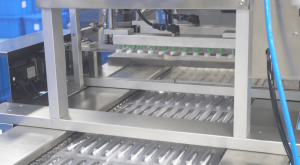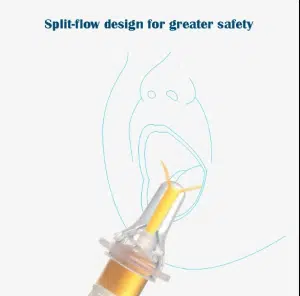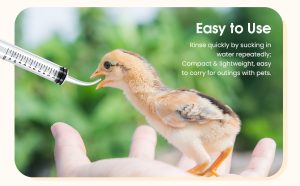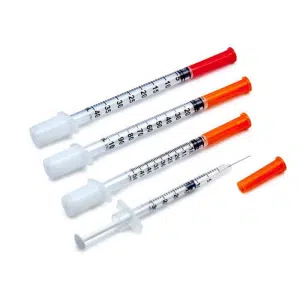In the global medical supply chain, selecting the right syringe supplier and blood collection needle manufacturer is a critical decision that directly impacts patient safety. As a professional medical disposables manufacturer based in Shanghai, we understand the key considerations international buyers face when choosing Chinese syringe and needle suppliers. This comprehensive guide will help you make informed procurement decisions, covering supplier qualification assessment, quality assurance systems, and syringe specification selection.
1. Five Key Evaluation Criteria for Selecting Medical Disposable Suppliers
1. Complete International Certification System (Essential Qualifications)
When choosing a syringe manufacturer, international certifications are the first gateway to quality assurance:
ISO 13485 Medical Device Quality Management System Certification
This is the globally recognized standard for the medical device industry. Syringe and blood collection needle suppliers with ISO 13485 certification must establish comprehensive quality management processes covering the entire lifecycle from raw material procurement, production process monitoring, finished product inspection to post-market traceability.
CE Certification (European Market Access)
The CE mark certifies that medical syringes and blood collection needles comply with the safety and performance requirements of the EU Medical Device Regulation MDR 2017/745. Ensure your supplier holds a valid CE certificate issued by an EU Notified Body, as the new regulations implemented after 2021 have become more stringent.
FDA Registration (U.S. Market Compliance)
Supplying syringes and needle products to the U.S. market requires FDA Establishment Registration and Device Listing, along with compliance to 21 CFR Part 820 Quality System Regulation. Professional blood collection needle manufacturers should be able to provide FDA registration numbers and 510(k) clearance documentation.
Procurement Tip: Request copies of all certification documents from suppliers and verify their validity through official websites.
2. Production Facility Standards (Clean Room Requirements)
Medical-grade syringes and disposable blood collection needles must be manufactured in GMP-compliant clean environments:
- Cleanliness Level: Production facilities should meet ISO 14644-1 standard Class 8 (ISO Class 8) or higher cleanliness levels
- Environmental Monitoring: Equipped with real-time particle counters, temperature and humidity monitoring systems, differential pressure monitoring devices
- Production Equipment: Fully automated injection molding machines, ultrasonic welding technology, automated assembly lines to minimize human contamination risks
- ETO Sterilization Facilities: For ethylene oxide sterilization processing of sterile syringes and sterile blood collection needles
Key Reminder: During factory visits, focus on checking whether the workshop is equipped with air showers, changing room systems, air purification systems, and other essential infrastructure.
3. Multi-tier Quality Control System
Professional syringe and needle manufacturers must establish rigorous quality inspection processes:
Incoming Quality Control (IQC)
- Biocompatibility testing of medical-grade polypropylene (PP) and polyethylene (PE) raw materials
- Material inspection of stainless steel needle tubes (304 or 316L grade)
- Elasticity and sealing performance testing of rubber plungers
In-Process Quality Control (IPQC)
- Syringe dimensional accuracy inspection (scale accuracy ±5%)
- Needle sharpness testing (penetration force ≤3N)
- Assembly tightness and gliding performance testing
Final Quality Control (FQC)
- Batch sampling inspection (AQL 1.5 standard)
- Blood collection needle vacuum seal integrity testing
- Sterility testing and endotoxin testing (for sterile products)
Outgoing Quality Control (OQC)
- Package integrity inspection
- Product labeling and batch traceability information verification
4. Comprehensive Batch Traceability System
Every syringe and blood collection needle should have complete traceability information:
- Unique lot number
- Manufacturing and expiration dates
- Raw material batch records
- Certificate of Analysis (COA)
- Sterilization batch records (for sterile products)
This traceability ensures rapid localization and recall of relevant batches in case of quality issues.
5. Supply Chain Stability Assurance
Evaluate the delivery capability of syringe suppliers:
- Annual Capacity: Monthly output should exceed 5 million units to ensure stable supply for large orders
- Lead Time: Standard orders 30-45 days, urgent orders 15-20 days
- Minimum Order Quantity (MOQ): Reasonable MOQ requirements (typically 100,000-500,000 units)
- Inventory Management: Safety stock maintained for standard specifications
- Packaging Solutions: Blister packaging or paper-plastic packaging, outer cartons using 5-layer corrugated cardboard to ensure transportation safety
2. Quality Advantages of Chinese Medical Device Manufacturing
China has become a major global production base for medical syringes and blood collection needles, with many manufacturers achieving international leading levels in quality management.
Stringent Regulatory Environment
NMPA (National Medical Products Administration of China) implements classified management of medical devices:
- Syringes and blood collection needles are classified as Class II medical devices
- Requires obtaining “Medical Device Registration Certificate” for production and sales
- Regulatory standards aligned with FDA and EMA (European Medicines Agency)
- Regular GMP surprise inspections ensure continuous compliance
Complete Industrial Cluster
Yangtze River Delta Medical Device Industrial Belt (Shanghai-Suzhou-Wuxi) has formed a complete ecosystem:
✓ Raw Material Supply: Medical-grade plastic pellets, stainless steel needle tubes, rubber plungers sourced locally
✓ Mold Manufacturing: Precision injection mold design and processing
✓ Supporting Services: Complete packaging materials, sterilization services, testing institutions
✓ Logistics Advantages: Proximity to Shanghai Port and Ningbo Port, convenient for exports
These industrial cluster advantages enable syringe manufacturers to:
- Rapidly respond to customer customization needs
- Strictly control raw material quality
- Maintain price competitiveness
- Shorten product development cycles
Continuous Technology Innovation Investment
Leading Chinese syringe manufacturers continuously upgrade production technology:
- Importing international brand injection molding machines from Germany’s Arburg, Japan’s Sodick
- Applying machine vision inspection systems for 100% online detection
- Deploying MES (Manufacturing Execution System) for digitalized production process management
- Developing innovative products like safety syringes and low dead space syringes
Balance of Quality and Cost-effectiveness
Chinese-manufactured syringes and blood collection needles typically cost 30-40% less than European and American products while maintaining quality. This cost advantage comes from:
- Economies of scale in production
- Complete industrial chain reducing procurement costs
- Efficient operational management
- Reasonable labor costs
Important Note: Low price does not equal low quality. Choosing legitimate medical disposable manufacturers with ISO, CE, and FDA certifications ensures both quality assurance and cost optimization.
3. Professional Guide to Syringe and Blood Collection Needle Specification Selection
Selecting the correct medical syringe specifications and blood collection needle models directly affects clinical effectiveness and patient safety.
Syringe Capacity and Application Scenarios
Small Volume Syringes (0.5ml – 1ml)
✓ Insulin injection (with 25G-31G ultra-fine needles)
✓ Vaccine administration (such as COVID-19 vaccines, influenza vaccines)
✓ Neonatal and pediatric medication
✓ Precise dose medications (biologics, hormonal drugs)
Standard Volume Syringes (2ml – 5ml)
✓ Intramuscular injection (gluteal, deltoid, lateral thigh)
✓ Subcutaneous injection (abdomen, thigh)
✓ Intravenous push
✓ Vaccine reconstitution and preparation
Medium Volume Syringes (10ml – 20ml)
✓ IV line flushing
✓ Blood drawing and collection
✓ Wound irrigation
✓ Contrast agent injection
Large Volume Syringes (30ml – 60ml)
✓ Enteral nutrition
✓ Enema
✓ Large volume drug preparation
✓ Surgical irrigation
Needle Gauge Specifications Explained (Gauge System)
Needle specifications are determined by two parameters: Gauge number (G) and Length (mm)
| Gauge | Outer Diameter | Typical Applications | Injection Type |
|---|---|---|---|
| 18G-20G | 1.2-0.9mm | Rapid infusion, blood collection, viscous liquids | IV infusion, hemodialysis |
| 21G-23G | 0.8-0.6mm | Standard IM injection, IV push | Intramuscular, intravenous push |
| 25G-27G | 0.5-0.4mm | Subcutaneous injection, pediatric use | Insulin, vaccine administration |
| 30G-32G | 0.3-0.23mm | Ultra-fine needles, insulin pens | Painless injection, cosmetic injection |
Needle Length Selection Principles:
- 13-16mm: Subcutaneous injection (abdominal fat layer)
- 25-32mm: Adult intramuscular injection (gluteal, thigh)
- 38mm: Deep intramuscular injection (heavier patients)
- 16-25mm: Pediatric intramuscular injection
Professional Advice: The finer the needle (higher G value), the less pain for patients, but slower injection speed. Selection should be based on drug viscosity and injection site.
Blood Collection Needle Product Classification and Selection
Standard Vacuum Blood Collection Needles
- 21G × 1.5inch (38mm): Most commonly used specification, suitable for routine adult blood collection
- 22G × 1inch (25mm): Suitable for patients with smaller veins or elderly patients
- 23G × 0.75inch (19mm): Pediatric blood collection, patients with poor vascular conditions
Safety Blood Collection Needles
Equipped with needle retraction or shield protection mechanisms, complying with the following regulatory requirements:
- U.S. Needlestick Safety and Prevention Act
- EU Medical Device Regulation 2010/32/EU
- Effectively reduces healthcare worker occupational exposure risks
Butterfly Needles
- Specifications: 19G-25G, tubing length 15-30cm
- Features: Soft wings for easy fixation, suitable for pediatric, elderly patients, prolonged infusions
Specialty Functional Syringe Products
Safety Syringes (Auto-Disable Syringes)
- Equipped with self-destructing or self-locking mechanisms to prevent reuse
- Suitable for vaccination programs, infectious disease prevention, medical aid projects
- Complies with WHO Pre-qualification (WHO PQ) standards
Low Dead Space Syringes
- Dead space ≤10 microliters (regular syringes 50-100 microliters)
- Suitable for high-value biologic injections
- Reduces drug waste, improves dose accuracy
Insulin Syringes
- Capacity: 0.3ml, 0.5ml, 1ml
- Scale units: U-40 or U-100 (International Units)
- Equipped with ultra-fine needles (29G-32G × 4-8mm)
Prefilled Syringes
- Glass or plastic syringe barrel
- Pre-filled with medication, ready to use
- Suitable for vaccines, monoclonal antibodies, emergency medications
4. Implementation Steps for Establishing Long-term Partnerships
Step 1: Sample Testing and Verification
Request samples from syringe suppliers and conduct the following tests:
Physical Performance Testing
- Needle sharpness testing (penetration force ≤3N)
- Gliding performance testing (push force ≤10N)
- Plunger sealing testing (no air leakage on aspiration)
- Scale accuracy testing (error ≤±5%)
Biocompatibility Testing (per ISO 10993 standards)
- Cytotoxicity testing
- Sensitization testing
- Skin irritation testing
- Acute systemic toxicity testing
Package Integrity Testing
- Blister seal strength testing
- Drop testing (simulating transportation environment)
- Aging testing (high temperature, high humidity environment)
Step 2: Factory Audit (When Necessary)
Conduct on-site audits or commission third-party audits for key blood collection needle manufacturers:
Audit Focus:
- ✓ Production facility cleanliness and environmental control systems
- ✓ Completeness and implementation of quality management system documentation
- ✓ Employee training records and operational procedures
- ✓ Calibration status of inspection equipment
- ✓ Raw material and finished product storage management
- ✓ Non-conforming product handling processes
Audit Tools: FDA and EMA audit checklist templates can be used
Step 3: Small Batch Trial Order
First-time cooperation recommendations:
- Order quantity: 100,000-500,000 units (based on actual needs)
- Payment terms: 30% deposit + 70% before shipment (or Letter of Credit)
- Delivery time: Clearly specify delivery timeline and breach of contract liability
- Quality clauses: Define acceptance standards and return/exchange policies
Step 4: Continuous Quality Monitoring
Establish regular quality review mechanisms:
Per-Batch Quality Management
- Review COA (Certificate of Analysis)
- Check lot numbers and expiration date labeling
- Sample and retest key indicators
Quarterly Quality Review
- Track quality issue occurrence rates
- Analyze customer complaints and return reasons
- Discuss improvement measures
Annual Supplier Assessment
- Quality performance scoring
- On-time delivery rate statistics
- Service response speed evaluation
- Contract renewal or elimination decisions
Step 5: Technical Support and Value-added Services
Excellent medical disposable suppliers should provide:
✓ Product Technical Consultation: Help select the most appropriate syringe specifications and blood collection needle models
✓ Customization Services: Provide custom packaging, custom printing, OEM/ODM services
✓ Rapid Response: Reply to inquiries within 24 hours, provide technical solutions within 48 hours
✓ Training Support: Provide product usage training materials and clinical application guidance
✓ Regulatory Support: Assist in preparing import customs clearance documents, FDA 510(k) submission materials
✓ Inventory Management: Provide VMI (Vendor Managed Inventory) services
5. Frequently Asked Questions (FAQ)
Q1: Are Chinese-manufactured syringes reliable in quality?
A: Chinese syringe manufacturers with ISO 13485, CE, and FDA certifications fully meet international quality standards. Many multinational medical device companies also have production bases in China or source from Chinese suppliers. The key is selecting legitimate suppliers with complete certifications.
Q2: How to verify the authenticity of supplier certifications?
A:
- CE certificates: Check the NANDO database for Notified Body information
- FDA registration: Visit the FDA website’s Establishment Registration & Device Listing page
- ISO certificates: Contact the issuing body (such as TÜV, BSI, SGS) to verify certificate numbers
Q3: What is the minimum order quantity for first-time purchases?
A: Most syringe suppliers have MOQs of 100,000-500,000 units, depending on specifications and customization requirements. If multiple specifications are needed, meeting the total MOQ is acceptable.
Q4: What is the lead time for sourcing from China?
A:
- Standard products (in stock): 15-20 days
- Regular orders: 30-45 days
- Custom products (special specifications/packaging): 45-60 days
- Sea freight time: 30-35 days to Europe, 20-25 days to the U.S.
Q5: What’s the difference between safety syringes and regular syringes?
A: Safety syringes are equipped with needle protection mechanisms (retractable or shielding), automatically disable after use, effectively preventing needlestick injuries and reuse. In European and American markets, medical institutions prioritize purchasing safety-type products to comply with occupational safety regulations.
Q6: How to choose the appropriate blood collection needle specification?
A:
- Adult routine blood collection: 21G × 1.5inch
- Elderly patients or small vessels: 22G × 1inch
- Pediatric blood collection: 23G × 0.75inch
- For needlestick injury protection compliance, choose safety blood collection needles
Q7: Can syringes have custom packaging?
A: Yes. Professional medical disposable manufacturers provide:
- Custom blister packaging design
- Outer carton printing with customer logo and information
- Multi-language labels and instructions
- Labeling compliant with various national regulations
Q8: How to ensure products are not damaged during transportation?
A: Legitimate suppliers will use:
- Inner packaging: Individual blister or paper-plastic packaging
- Middle packaging: Small boxes (50-100 units/box)
- Outer packaging: 5-layer corrugated cardboard boxes
- Pallet reinforcement and stretch film protection
- Recommended to purchase cargo insurance
Conclusion: Choosing the Right Syringe and Blood Collection Needle Supplier
Procuring medical syringes and blood collection needles requires comprehensive evaluation of supplier qualifications, production capabilities, quality systems, and service levels. Key decision points include:
✓ Certification Qualifications Are the Baseline
Ensure suppliers hold complete international certifications including ISO 13485, CE, and FDA—this is the minimum requirement for quality assurance.
✓ Production Facilities Determine Product Quality
Modern clean rooms, automated production lines, and advanced testing equipment are guarantees of consistent quality.
✓ Quality Management System Is Core Competitiveness
Rigorous four-tier IQC-IPQC-FQC-OQC inspection systems and comprehensive traceability systems ensure batch-to-batch consistency.
✓ Specification Selection Requires Professional Guidance
Choose the most appropriate syringe capacity, needle gauge, and blood collection needle model based on clinical application scenarios, patient demographics, and regulatory requirements.
✓ Long-term Partnerships Require Quality Service
Rapid response, technical support, customization capabilities, and continuous quality improvement are key to establishing strategic partnerships.
About Us
We are a professional medical disposables manufacturer based in Shanghai, China, specializing in the research, development, and production of syringes, needles, and blood collection needles.
Our Advantages:
- ✓ Complete International Certifications: ISO 13485, CE 0197, FDA Registration, WHO PQ Pre-qualification
- ✓ Advanced Production Facilities: 10,000㎡ ISO Class 8 clean rooms, fully automated production lines
- ✓ Strong Production Capacity: Monthly capacity exceeding 50 million syringes and 30 million blood collection needles
- ✓ Diverse Product Range: 1ml-60ml various specification syringes, safety syringes, low dead space syringes, vacuum blood collection needles, safety blood collection needles
- ✓ Global Sales Network: Products exported to Europe, North America, Middle East, Africa, Southeast Asia and 60+ countries
- ✓ Professional Technical Team: Providing 24/7 technical support and customized solutions
Contact us to receive product catalogs, price lists, and free samples. Let us become your trusted long-term partner for medical syringes and blood collection needles.





